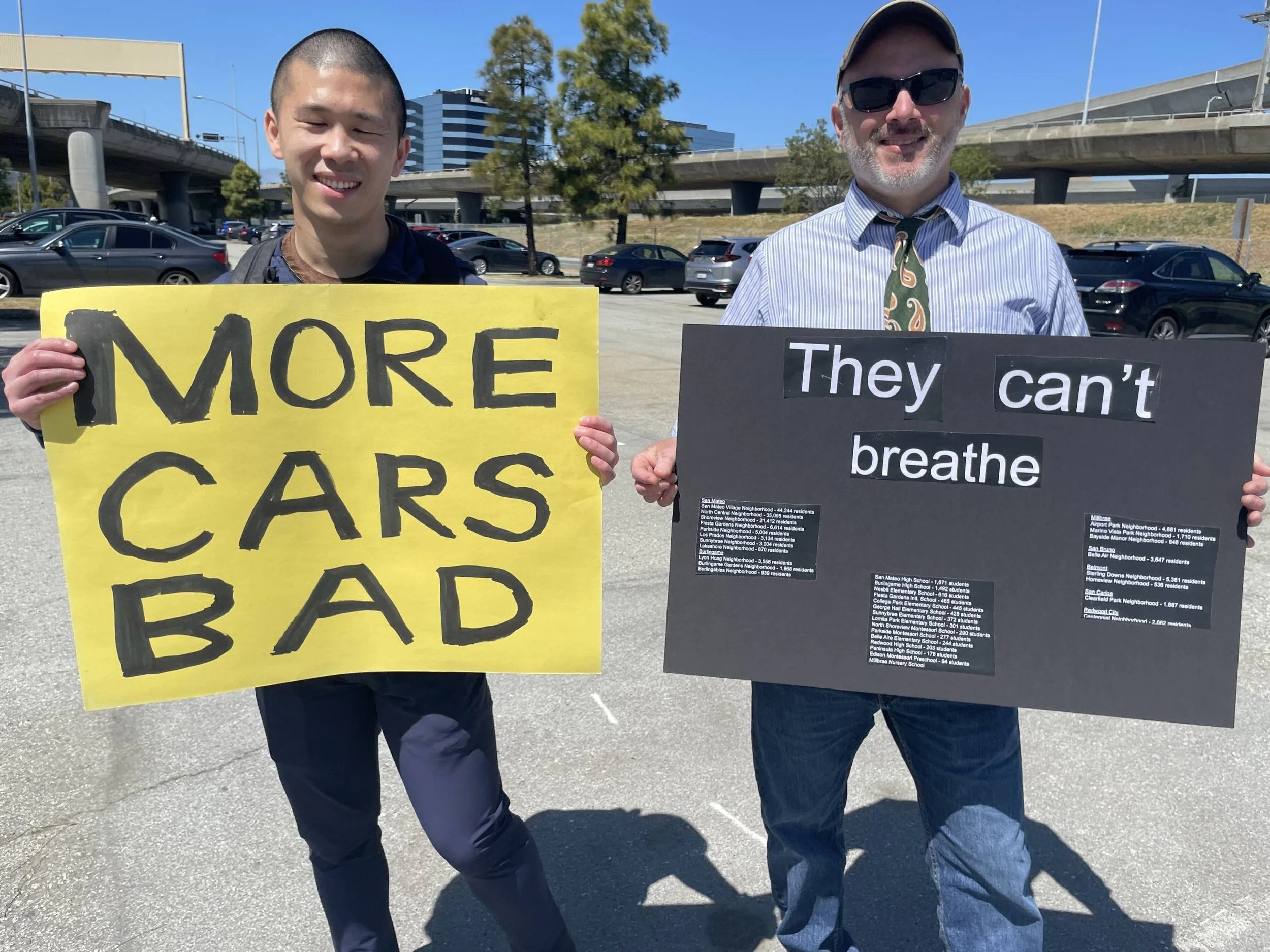San Mateo County Highway 101 Expressway lanes opening bring praise — and criticism
Darryl Yip (Left) and Mike Swire, Silicon Valley Bicycle Coalition local team members, show their opposition to highway widening at an official opening of Highway 101 express lanes in San Mateo. (Photo courtesy of KQED)
At ribbon-cutting ceremonies Saturday to mark the opening of a 22-miles expressway lanes project widening Highway 101 through San Mateo, not everyone was celebrating. Critics including members of Silicon Valley Bicycle Coalition local teams showed up to note that such projects do little to relieve congestion or environmental issues.
The $581-million, San Mateo 101 Express Lanes project is intended to reduce traffic congestion and encourage carpooling and transit use along the Peninsula.
“It’s good for the economy, it’s good for the environment, and it’s a win for all of the stakeholders who’ve been involved for years now in pulling this project together,” said Congressman Kevin Mullin, a San Mateo native who represents District 15, KQED reported in its coverage of the event.
But others said such projects can perpetuate, rather than solve, traffic and environmental issues.
“Highway widening has never worked,” said Mike Swire, a member of the San Mateo local team of SVBC, there with fellow member Max Mautner, in KQED’s report. Swire is also a member of the San Mateo County Transportation Authority Citizens Advisory Committee (although he was not speaking on behalf of the committee).
“It creates what’s called induced demand, which means that basically the easier you make it for people to drive, more people will drive,” Swire said, in the KQED report. “The county and elected officials had an opportunity to install express lanes without widening the highway, but instead they chose to widen it, which simply adds more capacity for more cars, [which] adds more cars, which means more air pollution — largely falling on communities that are people of color and low income living adjacent to highways.”
“I’m concerned because I believe that as San Mateo County grows and as the Bay Area grows, we need to be investing in transit and we need to provide that money,” said Darryl Yip, of SVBC’s North San Mateo County team, a transportation planner who lives in South San Francisco.

